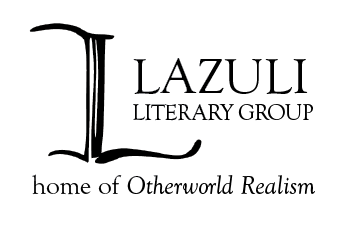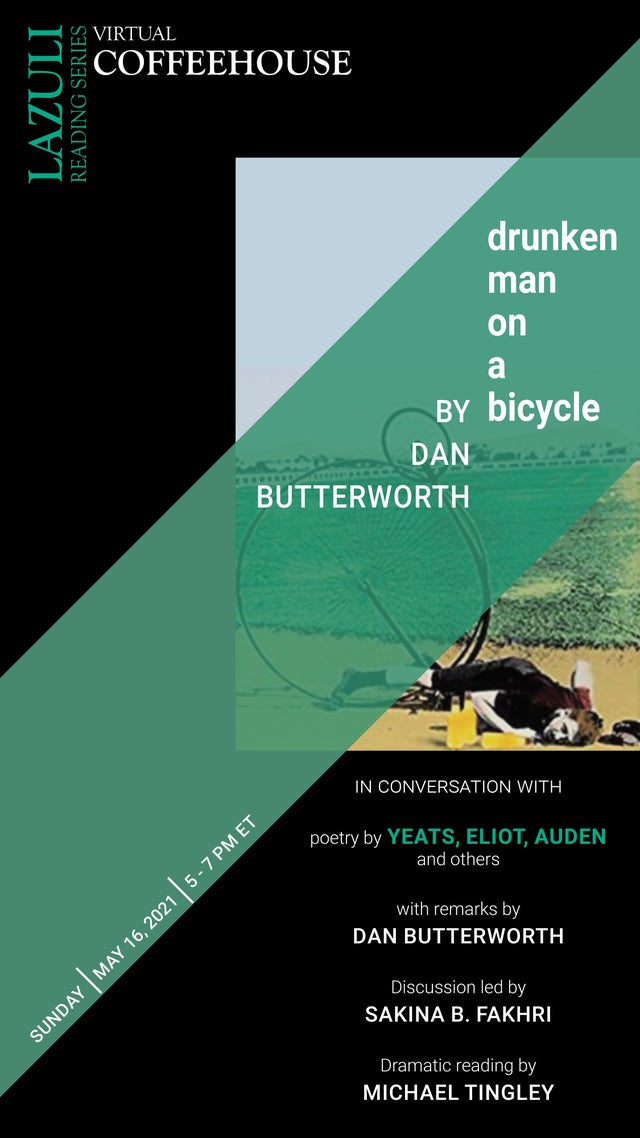The Comic-Grotesque in Poetic Performance: Auden, Yeats, and Eliot [Lazuli Reading Series]
[Online Event]
Sunday, May 16: 5-7pm ET
The Comic-Grotesque in Poetic Performance: Auden, Yeats, and Eliot
The Ogre does what ogres can,
Deeds quite impossible for Man,
But one prize is beyond his reach,
The Ogre cannot master Speech:
About a subjugated plain,
Among its desperate and slain,
The Ogre stalks with hands on hips,
While drivel gushes from his lips.”
-W.H. Auden
In this seminar, we will do a close reading of AZURE author Dan Butterworth’s multi-part poem “drunken man on a bicycle” in the context of works by Auden, Yeats, Eliot, and others. Michael Tingley will do a performative reading of various stanzas, and--following our discussion--author Dan Butterworth will share some thoughts on his poem.
W.H. Auden: “September 1, 1939” / “In Memory of W.B. Yeats” / “Spain” / “Casino” / “Jumbled in the common box…” / “Mundus Et Infans” / “Under Which Lyre” / “Memorial for the City” / “Under Sirius” / “Vespers” / “August 1968”
Charles Baudelaire: “Au Lecteur”
T.S. Eliot: “The Waste Land” / “The Hollow Men”
W.B. Yeats: “Easter, 1916” / “Byzantium” / “Lapis Lazuli” / “The Second Coming”
Edgar Allan Poe: “The Conqueror Worm”
Sylvia Plath: “Circus in Three Rings”
Many of these poems are political in nature and interact, in some manner, with the themes in “drunken man on a bicycle.” We will be exploring the conceit of a “play within a play,” examining how an aesthetic distance affects our perception of the grotesque, or how metaphoric and scientific language can place us at a sometimes-analytic, sometimes-comical, but ever-illuminating distance from political realities in our midst. The shifting perspectives (I, you, me, we), the constant expanding and contracting of scale from the particular to the universal (rendered both in form and content), and the themes of childhood, sickness, religion, and rhetoric will also figure in our discussion. Finally, we will dig through Butterworth’s references that span periods of historical time and fictive mythology (from Tiresius and Medusa to Napoleon and Stalin) and compare the effect of these allusions to those found in the poetry of Auden, Eliot, and Yeats.
Some of these poems are lengthy (not to mention our feature poem), so do be sure to allot enough time to read them before our discussion. Although we will not have time to delve into every single poem in detail on the day itself (unfortunately!), your having read them beforehand will prepare your literary palate for a textured reading of “drunken man on a bicycle.” I will pull particularly relevant lines from some of the material so that we can focus our time on close reading rather than generalized impressions of all of this lovely, infinitely discussable poetry.
All poetry and supplementary readings are free, and these documents and links will be e-mailed to you once you sign up; that being said, the majority of the works we will be reading are by Auden, so if you’re an Auden-enthusiast you might want to obtain a paper copy of one of his anthologies!

